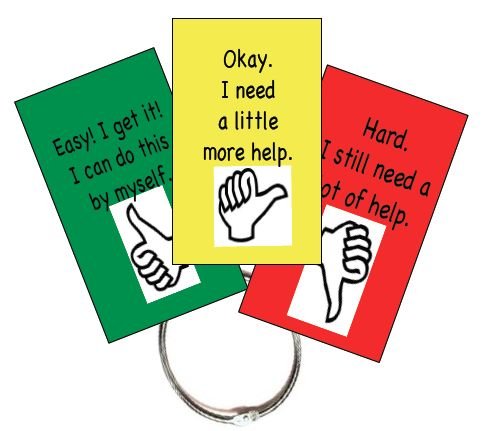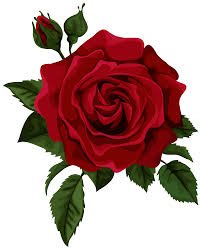A Self-Evaluation on writing the book 'The stone the builder rejected'.

First of all I’d like to point out straight out the gate that the excerpts from my book was not published on Steemit for profit, it was to share my story so that others could benefit. I’m quite an open book so telling my story on the Steemit Platform wasn’t going to be a problem, however I did have some apprehension about revealing details that may attract judgement and criticism. But the benefits far outweighed any negative comments or judgement I thought I may receive, and I wasn’t going to be put off by views and opinions contrary to my own as people are entitled to say what they think. Some may have seen it as a risk, but it was a risk worth taking in my view.

It took eight years from the point I had the idea to write a book, and six years to write it. In the beginning I had three separate drafts with three different introductions. I was then getting myself into a bit of a spin, not knowing where to start the story or how it would end. Then I decided I would start each chapter with a specific area in my life and tell the story from there. Now that worked for me, but you may find other structures will come to mind the more you write and organize the work.
Before I embarked on writing ‘The stone the builder rejected’, I was aware of how my demons within was gnawing away at my insides and was probably a story that needed to be told and people may not believe if not for the fact the pain and suffering was real. The pain manifested itself in people-pleasing and compliance with things I should have said ‘yes’ to, and people I should have kept the Hell away from. Because you see, ‘you have to start by getting very ‘real’ about who you are’ (McGraw, 2012:8), and about how the world works!
That was the difficult bit for me, getting to know how people were in this world, I didn’t know even close family can betray and let you down in our time of need. When I complained about people’s behaviour, I was told ‘not everyone thinks like you’ by a family member and ‘get over yourself’ by a boss who told me when I took colleagues opposition to my progress as negative, and she saw it as a compliment. It took a long time to accept that this was where I was, unable to accept a world that I neither felt I belonged, or wanted to be in. So when writing this book, my emotions oscillated between feelings of love, hate, anger, revenge, and also I felt a sense of loss that I didn’t have a family, not one that I could love and trust.
Even the chapters on the loss of my father and brother Eric, sorry, even now as I write about this I’m in tears, I don’t think I’ll ever stop. In hindsight I believe it was this underlying grief that led to my last episode of depression, because I sensed their love for me was unconditional. It was the only love I’d ever known, not like the conditional love I’d grown use to and mourned. I’m going to have to not carry on writing about this as it’s clear, even though I had sought to lay the pain to rest in writing this book, I’m still not healed from the grief – even after thirty odd years. Some would say I’m still living in the past, I’d say that this wouldn’t be correct, it’s just that unconditional love is what my Soul cries for as surface love doesn’t and cannot exist.
To better understand my position, I’m going to refer to John Bowlby’s Attachment Theory, ‘The making and breaking of affectionate bonds’ (Howe, 1995) in which Bowlby’s enquiry on separation and loss not only found young children suffered pain and upset when separated from parents, but the long term effects of maternal deprivation when we are older can manifest ‘possible mental illness in adults’ (Howe, 1995:46). I don’t want to get too academic about my feelings at that time, but it’s the quote that best describes my emotional responses to events in my childhood that I can see how a pattern of negativity contributed to my decline into depression in adulthood.
I never felt my mother’s love although there were loving moments, and I understand now that she may not have had the love to give equally to all her nine children. Moreover, how can we love and nurture when from childhood we are left and abandoned by our mother to be raised by a father who left us to be raised by his sister. That was my mother’s childhood, mixed race and abandoned by both parent. These are generational patterns that my mother carried into her relationship with her children and subconsciously I carried over into my relationship with my own children.
Being indecisive about whether I should leave my children with their father, or live my life without my children writing this book really helped me to connect the dots. But I’m still working on forgiveness, forgiveness of myself and forgiving what I tried to control that wasn’t mine to change. Does that mean I will continue to feel hurt by what took place? Maybe. Can broken pieces ever mend? Not really. But that’s just my opinion, I’m sure people have been able to move on from traumatic experiences in their own way preferring to break ties with their past completely and absolutely. The good thing is I’m no longer angry, I’ve found peace amongst my broken pieces and can look towards the future with clarity and certainty. Certain that by letting go I give up the need to know what happens tomorrow.
Life lessons
In writing this book I was able to see my journey and its transition more logically than I was first able to comprehend. To see how the characters (friends and family) taught me lessons that I needed to learn that in turn led to finding out who I was. And in that process I learnt the art of patience, and to this day I practice patience whenever I feel the urge to be impatient, which is a valuable tool to have.
Before I bring this evaluation to an end, I want to pay homage to one of my Masters who has been through a transformation of her own, that is Dr Iyanla Vanzant who shows us in her many testimonies that our most important lessons come from life’s hardest knocks. In one of her lessons
"I no longer needed to do things to prove myself worthy of being loved. I was no longer afraid to ask for what I wanted for fear I wouldn't get it. I was no longer angry when things did not go my way. Most importantly, I was no longer angry about what I could not or did not have in a relationship.
In the meantime, I learned how to mind my own business, the business of loving myself and being excited about me. I learned how to fly on my own".
Iyanla Vanzant, (1999)

Pictures: Image
Sources: J Law memoirs
References:
McGraw, P, Dr. (2012) Life Code: THE NEW RULES FOR WINNING IN THE REAL WORLD, Bird Street Books, Inc.
Howe, D. (1995) Attachment Theory for Social Work Practice: PALGRAVE
Vanzant, I, Dr. (1999) In the Meantime: FINDING YOURSELF AND THE LOVE YOU WANT, Simon & Schuster UK Ltd
